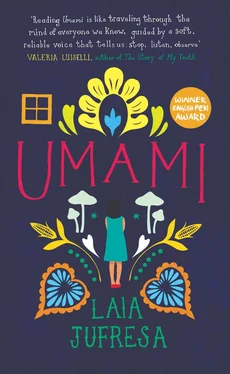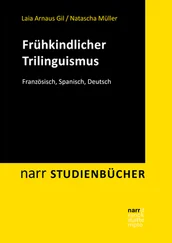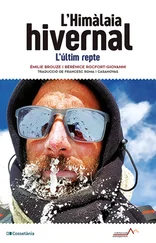Noelia didn’t mention on that first evening that her father had been the top dog at the Heart and Vascular Hospital in Mexico City before opening his own clinic in Michoacán. Nor that it was there, at the tender age of twelve, that she learned to read holters, which means detect arrhythmias. Nor did she mention over dinner that she was one of just five (five!) specialists in her area in the entire country. She told me the following morning. We were naked on the sofa in her living room, and before I even knew it I’d knocked back my coffee, scrambled into my clothes and hotfooted it out of her apartment. I didn’t even ask for her number. In other words, as she accurately diagnosed it the next time we saw each other almost a year later, I ‘chickened out, like a chicken’.
To say I chickened out is an understatement, of course. In reality, and using another of Noelia’s expressions, I shit my pants. I was petrified, and only came to understand the root of my panic later, when I began to analyze who I’d spent the subsequent twelve months bedding: all of them well-read, highly educated young women. Basically, my students. I was even going to marry one of them: Memphis, as Noelia nicknamed her years later when they finally met (I think because of the boots she was wearing, or maybe it was the haircut, what do I know?). Mercifully, just before the wedding I had a dream. I was a bit macho, yes, a chicken, certainly, but before either of those things I was superstitious as hell: having received the message, I knew I had to heed my subconscious, so I turned up unannounced at Noelia’s apartment. For a minute she didn’t recognize me. Then she played hard-to-get for a while, like two weeks. But as time went on we became so inseparable, so glued at the hip, that now I can’t understand. On my job at the National Institute for History and Anthropology, on my grant from the National Organization of Researchers, on all those qualifications which supposedly mean that I know how to deal with complex questions, I swear I don’t get it. I don’t understand how I’m still breathing if one of my lungs has been ripped out.
The dream I had. Noelia was standing in a doorway with lots of light behind her. That was it. It was a still dream, but crystal frickin’ clear in its message. Threatening even. When I woke up, still next to Memphis, I knew I had two options: I could take the easy route, or the happy one. An epiphany, you might call it. Incidentally, the only one I ever had in my life.
*
Noelia had a soft spot for sayings and idioms. If ever there was something I didn’t get — which was often — she would sigh and say, ‘Shall I spell it out for you?’ I remember one time Noe sent me flowers to the institute for a prize I’d won, and on the little card she’d written, ‘You’re the bee’s knees’.
But sometimes the sayings and idioms were home-grown, without her having consulted anyone. For example, she tended to come out with, ‘A scalpel in hand is worth two in the belly.’ And I always thought this was a medical saying, but Páez assured me that he’d only ever heard it come from Noe’s mouth and that no one in the hospital really knew what it meant; some thought it was something like ‘better to be the doctor than the patient’, while others understood it as ‘better to take your time while operating than to botch it in a hurry’, et cetera, et cetera.
On the other hand, Noelia couldn’t abide riddles. Or board games. And general-knowledge quizzes were her absolute bugbear. They put her in a flap and she’d forget the answers then get all pissy. We once lost Trivial Pursuit because she couldn’t name the capital of Canada. She also loathed sports and any form of exercise. She had a fervent dislike of dust. And insects. For her, the very definition of evil was a cockroach. And she didn’t clean, but rather paid someone to clean for her. Doña Sara stopped working for me a few months ago with the excuse that she’d always planned to move back to her home village, but really I think seeing me in such a state depressed her. I paid her her severance check; she set up a taco stand. She did the right thing. Hers really were the best tacos in the world. And it’s a good thing too, I think, for me to deal with my own waste.
For much of my life I really did believe I was the bee’s knees, because unlike my colleagues I liked to get my hands dirty actually planting the species we lectured on. I always kept a milpa in the backyard because, in my opinion, if you’re going to say that an entire civilization ate such-and-such thing then you have to know what that thing tastes like, how it grows, how much water it needs. If you’re going to go around proclaiming the symbiosis of the three sisters, you have to grab a hold of your shovel and take each one in turn: first the corn, then the beans, and after that the squash. But now I see my whole agricultural phase differently: I had time on my hands. Time not taken up by youngsters. Time not taken up folding clothes. It’s so obvious but only now do I fully understand that it’s easier to get your hands dirty when you’ve got someone to clean everything else for you. But there you go, I was always the most bourgeois of anthropologists.
These days, when I hit the hay, quite often the only productive thing I’ve done all day is wash the dishes I used, or clean up the studio, or take out the trash. I suck at it, but I give it my all. Once The Girls are in the stroller, I push them to whichever part of the house is messiest. I like to have witnesses.
‘Look at me,’ I tell them. ‘Sixty-four years old and my first time mopping the floor.’
Noelia did like children, but from a safe distance. She’d never wanted her own, and then when she did finally want them it was too late. She wasn’t into drama. Or rather she was, but other people’s. She liked fried food but hardly ever let herself indulge. She liked the smell of spices — cumin, marjoram, lemongrass —, pressed clothes, and fresh flowers in the house. She paid one person to come and iron and another to bring the fresh flowers. She liked to pay well and tip on top. She liked earthenware, as long as it wasn’t fussy. She refused to keep the best china for special occasions.
‘Every chance I get to sit down to eat is a special occasion,’ she used to say. ‘At least till my beeper goes.’
The arrival of the beeper was such a momentous event in our lives that not even its evolution into snazzier, more compact devices stopped us calling everything that interrupted our meals or siesta the beeper. Above all the siesta, because traditionally it was the time we would make love. I preferred the morning (when she was in a hurry), and she preferred nighttime (when I was tired), so the siesta was the middle point that always worked for us.
Noelia smoked Raleighs until her younger brother had his first cardiac arrest and the family learned that even cardiologists can be touched by heart problems. I only ever smoked the odd cigar, but her smoking didn’t bother me, and when she gave up I felt like we’d both lost something. I never told her that, of course. Each year, or at least for the first decade of her abstention, we’d put on a party in celebration of another 365 days smoke-free. That we lost something is perhaps not the right way to put it. We left something behind, I mean. We turned a page, no looking back, as the boho poets from the Mustard Mug would say.
*
The Mustard Mug is the bar around the corner which I dip into when my body so demands. Nobody knew about these trips until one of my tenants, the gringa who lost her daughter, also started going. I used to call her gringa to her face but with hindsight it sounds a mite assy. The thing is, I never felt too kindly toward that family. They’re a noisy bunch and form a majority in the mews because they rent two houses: Sweet and Salty. They live in one of them and use the other as a studio, teaching piano and drums and God knows how many other instruments. Everyone in the family knows how to play at least two. The eldest daughter is the only one I get along with, perhaps because she’s notoriously tone deaf, or perhaps simply because she was born right in the middle of the brief period when Noelia regretted not having children and we found ourselves cooing like idiots over every baby that came our way. But it’s also true that I started to take a shine to Agatha Christie, or Ana, as she’s really called, as she got older, because she was a misfit, and because she liked me. While helping me out in the milpa in the evenings, she would explain — as if they were puzzles — the various dilemmas faced by Poirot and Miss Marple in the pages she devoured. I never solved a single one, by the way, and not for lack of trying. Sometimes I didn’t want to open the door to her, because I preferred to be alone, but the more time I spent with her at my side, the more I grew to like myself. It doesn’t take a rocket scientist to work out that my empathy toward Agatha Christie is a form of self-affection, because she is who I once was: a young kid left to her own devices in this exact same nook of a huge city. Seeing her reading huddled in corners made me mad at the parents, who went on making more babies instead of paying her the attention she deserved.
Читать дальше












